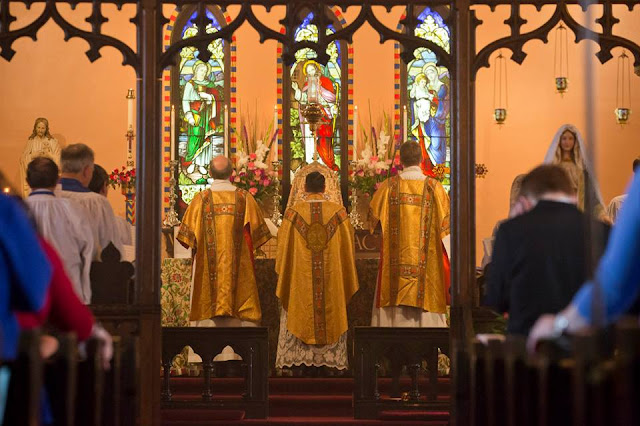This Week In Beauty Talk: mining the web for evidence of the transcendentals.
 |
| Divine Worship — The Ordinariate Mass |
Announcing Liturgy Outside Liturgy: The Liturgical Theology of Fr. Alexander Schmemann by David Fagerberg
Excerpt from the article by Dr. P. Kwasniewski.
Fagerberg observes that “Liturgical reform should not, therefore, be self-serving; liturgical reform is a matter of empowering the Church’s leitourgia, which is the work of a few on behalf of the many.” He summarizes the conclusion his book in this way: “Let me conclude with a glance back over all three investigations: should liturgy matter, where is theology done, and does liturgy enter our life? In these three questions we were only following Schmemann’s own definition of the goal of liturgical theology, which is to overcome the fateful divorce between theology, liturgy, and piety. This breakup deprived liturgy of its proper understanding, theology of its living source, and piety of its living content. … The liturgical cult does not exist for itself, but for the sake of the world, for the sake of understanding and transforming the world.”
+ + +
The Importance of Liturgical Beauty
by Shawn R. Tribe
Excerpt from the article by Mr. Tribe.
That our experiences, actions and other external dimensions of life generally have a profound influence upon us, forming us, moving us and so forth, is really a matter of common sense and experience. We are creatures founded in both of these aspects and we live and respond accordingly. What is true of life in general is also true of the liturgical and ecclesiastical life. To thus deny or minimize beauty's relevance and importance, even in the face of our lived-experience which speaks so poignantly to its influence upon us in so many regards, is, to paraphrase Mosebach, to rebel against what is self-evident.
+ + +
Two encouraging stories involving BISHOPS! Yes, you read that right!
Fr. Zuhlsdorf mentions the following article:
Fort Worth, Texas, Apr 2, 2018 / 03:00 pm (CNA/EWTN News).- At the Chrism Mass celebrated during Holy Week, a Texas bishop offered reflections on the Church’s liturgical life, telling priests the straying from liturgical texts can be detrimental to the unity of Catholicism.
“The importance of Christ-centered and shared repetition in our collaborative mission as the Church requires that we avoid the addition of words or gestures that are alien to the rites and liturgical texts provided us by the Church,” said Bishop Michael Olson of Ft. Worth, Texas.
The practice of faithful repetition in the liturgy is crucial to the integrity of all Masses since it unifies the universal church, Olson said.
The Texas bishop also noted that straying from liturgical norms will produce “a greater sense of isolation and entitlement to our own individual preferences and opinions,” and will lead to the dangers of redundancy, causing “a sense of confusion of Catholic identity.”






Comments
Post a Comment
Your comments will be appreciated and posted if 1) they are on topic and 2) preserve decorum.
Stand by your word.